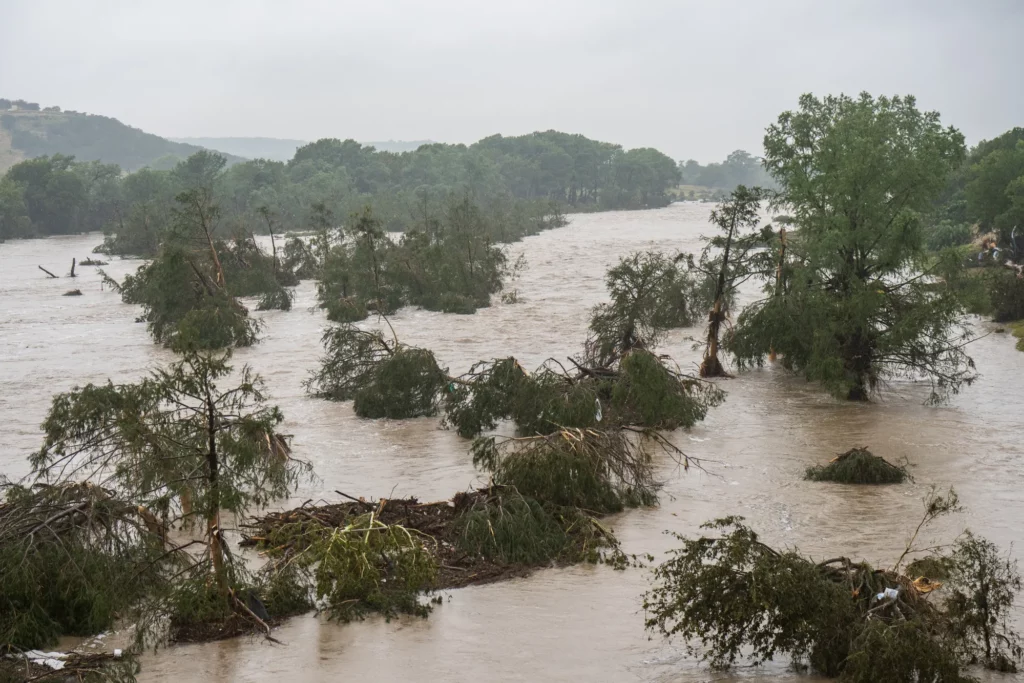On Thursday night and Friday morning, in dry Central Texas, four months’ worth of rain fell in less than twelve hours, causing devastating floods and inundating the region centered near Kerrville, Kerr County. The damage was intensified by the nearly instantaneous rush of a “flood wave” that rolled along the Guadalupe River, which experienced surges of up to 26 feet in just 45 minutes.
As of Sunday afternoon, 70 individuals are confirmed dead, most in Kerr County, but officials do not know the total number of those missing due to the large number of visitors over the Fourth of July weekend. The flooding all occurred in the famed Hill Country of South Central Texas, about 85 miles north of San Antonio.
The affected areas are sometimes referred to as “Flash Flood Alley” because rainfall flows quickly down steep limestone hills into already overflowing rivers. The region is a hub for Texas summer camps, and at this point, the deaths of 21 campers have been confirmed, with 11 still missing. Our hearts are with all the families experiencing this sudden and destructive tragedy.
Intensified by climate change, extreme weather events—including severe hurricanes, wildfires, atmospheric rivers, and heavy rainfall like that seen in Central Texas—are projected to become significantly more frequent in the years ahead. In a 2024 report, Texas A&M climatologist John Nielsen-Gammon wrote that, on average, “extreme one-day precipitation has increased by 5% to 15% since the latter part of the 20th century.” By 2036, Nielsen-Gammon expects an additional increase of about 10% in rainfall intensity. Daniel Swain, a climate scientist with the UCLA Institute of the Environment and Sustainability, said the Central Texas rainfall this week was “precisely the kind of rainfall event scientists expect to become more common in a warming climate.”
Reflecting on the storm, Nim Kidd, head of the Texas Division of Emergency Management, said weather predictions underestimated the severity of the storms. Various news sources have speculated that, exacerbated by job cuts this year, the National Weather Service’s delay in issuing warnings about the potential dangers of the storm may have contributed to the number of deaths caused by the flash floods.
Authorities are now warning that with more rain forecast, the risk of further flash floods in the coming days remains high.
While NECHAMA will not be deploying in response to this event, if you would like to make a contribution to support relief efforts in Texas, we will pass along all donations designated for Texas Flood Relief 2025 to a relevant Jewish organization in the region. If you do so, please select “Donation Options” and write “Texas Floods” in the comment section of our donation form.
In the face of such immense loss, we extend our deepest sympathies. May those impacted find strength and support.
– The NECHAMA Staff
